Top tech of MWC 2024
Mobile World Congress, or MWC, is a trade show that’s similar to CES, but concentrated solely on mobile technology. Held in Barcelona, Spain, the show has been rather quiet over the past few years, but in 2024,the industry has returned to it with gusto.
That renewed vitality shows in the number of great new products we had to choose from to curate our best-of list. We were introduced to dozens of exciting, innovative, and downright cool new products, but we finally managed to agree on just six of them to honor as the Top Tech of MWC 2024.
OnePlus Watch 2
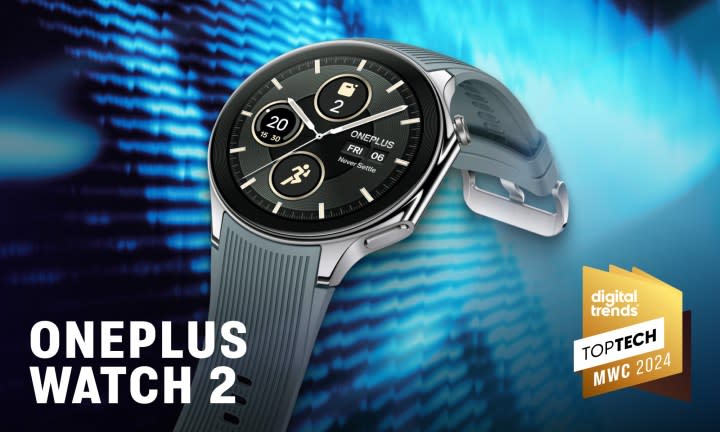
OnePlus is back with a new smartwatch, after its first attempt, the original OnePlus Watch, didn’t impress as much as it could have done. This is the company that has given us excellent smartphones like the OnePlus 9 Pro and OnePlus 12, so expectations were high. This time around, the OnePlus Watch 2 gets the software right with Google’s Wear OS, and then goes mad by adding a second operating system and a dual processor setup to manage it all.
The result is Wear OS when you want to get things done, and a simple real-time-operating system (RTOS) when you don’t. This hybrid design extends battery life to at least three days from a single charge. Because one of the chips is the Qualcomm Snapdragon W5, performance is great, and all this makes living with the OnePlus Watch 2 enjoyable and fuss-free. Well, for the most part, as there are some aspects that confuse us, such as the rotating crown that doesn’t actually serve any function when you twist it.
No product is perfect, but OnePlus scores big with its unusual approach to making the battery last longer, simple charger, fast performance, and slick design that’s comfortable on the wrist. We also love that it’s available to buy now, and at a price that just undercuts the other best smartwatches of 2024.
Tecno Pocket Go
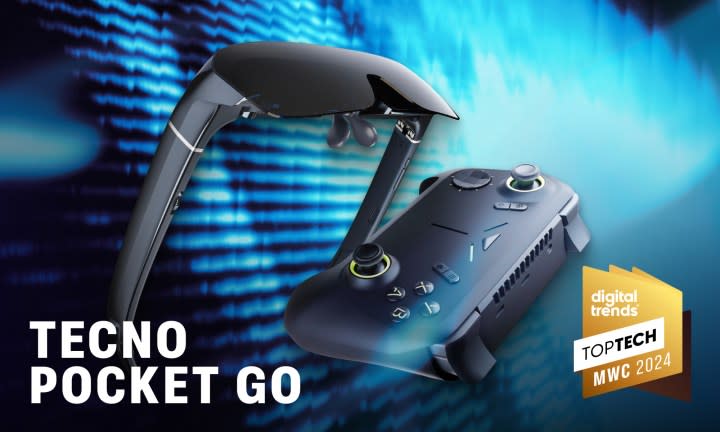
MWC isn’t only about phones. It’s about mobile technology, and handheld game devices fit neatly into that category. Tecno, which we like for its folding phones and mid-range models, came to the show with the Tecno Pocket Go, which takes the Steam Deck concept and puts it on your face. It pairs a wearable display with an Xbox-style controller, runs Windows, and is powered by an AMD Ryzen 7 8840HS processor. All in all, it provided an immersive, private handheld gaming experience. The company used the notoriously power-hungry Cyberpunk 2077 game to demonstrate it, and performance really impressed.
It’s an interesting take on the wearable display trend, taking it away from movies and refocusing it on gaming. Not sold on the controller? You can also buy the Pocket Go glasses separately and use them as an extension of your phone or computer, making them quite versatile.
Apart from taking two current trends and putting them together, Tecno has also thought about the people who will use the Pocket Go. It has added an adjustment to help those who normally wear spectacles to use it without wearing them and eliminates the need to buy a special set to fit inside. The controller also has a removable battery pack. These features mean the Pocket Go will be usable for longer, and by more people. It’s a fun, well-conceived product that we hope sees a wide release.
Honor Magic 6 Pro
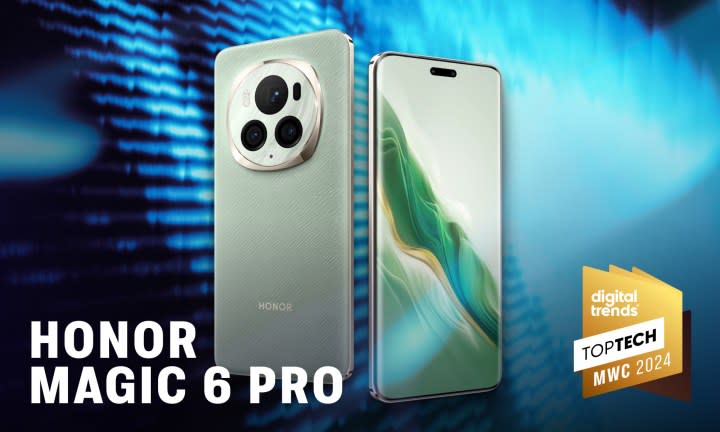
One thing you can’t say about the Honor Magic Pro 6 is that the camera module looks like what’s seen on every other phone. It’s a bold, curvy, multi-lens setup in the top center of the phone’s rear panel that stands out as a seriously eye-catching design element. It contains a 50-megapixel main camera with an adjustable aperture, a 50MP wide-angle camera, and a 180MP telephoto camera with a 2.5x optical zoom.
But the camera isn’t what makes the phone a star at MWC. It’s the first globally released phone with an environmentally friendly, cooler-running silicon carbon battery instead of the more often used lithium-ion cell. It has a 5,600mAh capacity and, thanks to new software and a special power management chip called the E1, it is expected to be very efficient.
Honor is taking the battery, and the battery life, seriously with the Magic 6 Pro, and that always wins points with us. But it doesn’t stop there. The Magic 6 Pro has an unusual control system where just looking at the screen allows you to open apps and control certain features. The AI eye-tracking feature isn’t going to be on international phones at launch, but hopefully will arrive soon.
Xiaomi 14 Ultra
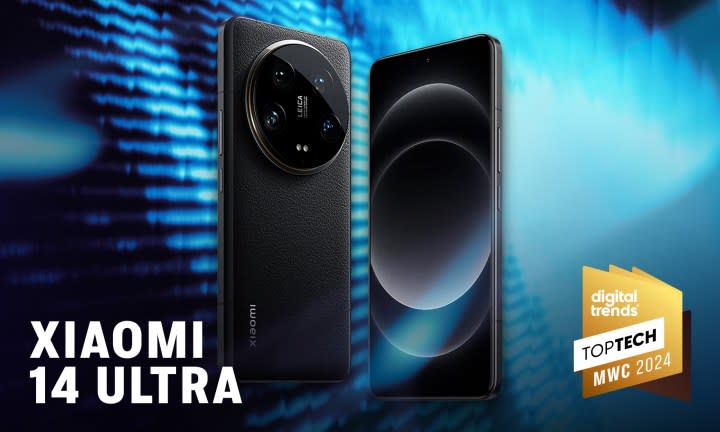
The Xiaomi 14 Ultra is a flagship smartphone with specs that put it up against the Samsung Galaxy S24 Ultra and the Apple iPhone 15 Pro Max. Like previous Xiaomi Ultra phones, the emphasis is on the camera, which has been developed with partner Leica — and it doesn’t disappoint. It uses the new Sony LYT-900 1-inch, 50-megapixel sensor with an adjustable aperture, a pair of 50MP telephoto cameras for a 3.2x and 5x optical zoom, and another 50MP wide-angle camera.
Underneath the camera hardware is Xiaomi’s new HyperOS software, new AI handling the computational aspects of photography, and a host of Leica modes and effects. The partnership between Xiaomi and Leica is no joke, with the pair collaborating on a dedicated research center, where experts work to improve still and video camera performance on mobile devices. We have high expectations for the Xiaomi 14 Ultra’s camera, given how good previous versions have been.
Camera aside, the Xiaomi 14 Ultra has everything you expect from a top modern phone, including the Qualcomm Snapdragon 8 Gen 3 processor, a massive 6.73-inch AMOLED screen with a 3,200 x 1,440 pixel resolution, a 5,000mAh battery and 90-watt fast charging, plus an IP68 water resistance rating. But a big reason it’sincluded on this list is Xiaomi’s decision to release the 14 Ultra globally, meaning it will be far easier to obtain and use than when it’s solely released in China.
HMD Fusion
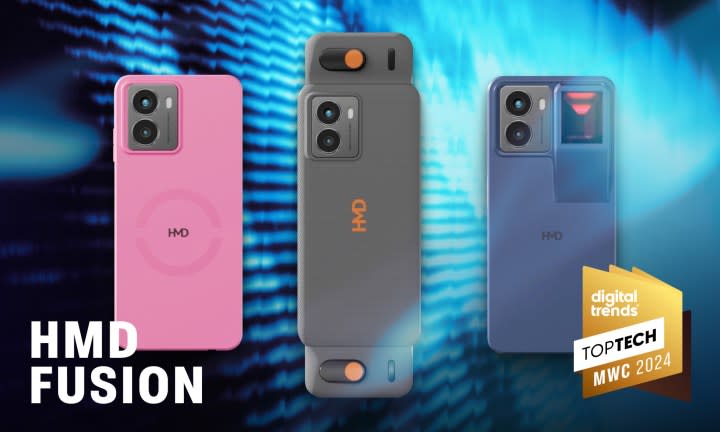
HMD Global is currently best known for making phones with the iconic Nokia name, but at MWC 2024, it announced the creation of a new brand, known simply as HMD, that will feature “original” devices. One of the first will be the HMD Fusion, and it’s going to take on one of the hardest mobile nuts to crack: modular hardware.
Many have tried in the past, and HMD is aware of the task ahead of it. The Fusion will use a simple six-pin connector for you to add accessories that enhance the functionality of your phone, with plans for everything from extended batteries to specialist medical equipment. What’s more, it has made a developer kit available for anyone to download, potentially letting keen amateurs and small businesses make their own, limited-run range of accessories.
It takes a bold company to attempt modular phones after so many failures, but HMD’s tweaks to the formula, an understanding of where others got it wrong, and the advancement of 3D printers and general coding knowledge gives it a stronger chance of some success. It’s exactly what we want to hear about at MWC, and we’re excited to see the HMD Fusion in the summer.
Motorola Adaptive Display Concept
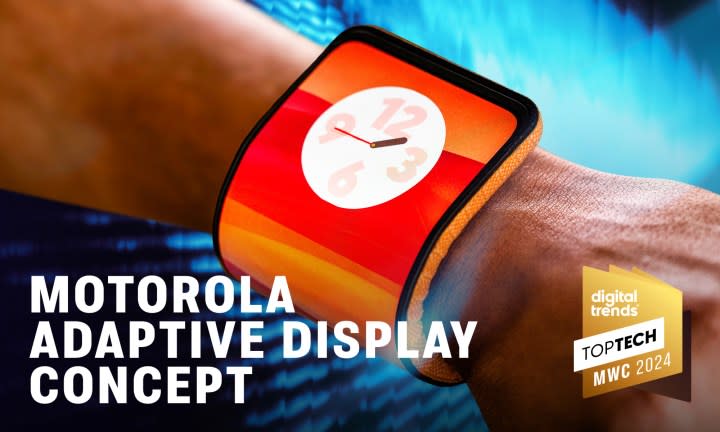
The name “Motorola Adaptive Display Concept” doesn’t really tell you much, but when we tell you it’s Motorola trying to put a bendy smartphone on your wrist, we know we’ll have grabbed your attention. The secret behind this concept is the bendable display and clever hinge technology hidden inside a normal-looking phone, which, when paired with a special bracelet, allows you to wear your phone like you’d wear a smartwatch.
Unfolded, the concept phone looks like a fairly normal 6.9-inch phone, but on the back, under the ridged rear panel, are the hinges that let you bend the phone, making it a little like a compact folding phone. But here, it doesn’t create a V-shape but a U-shape instead, giving it a very different look compared to other phones, and that very unusual ability to wrap around your wrist.
We actually tried it out at MWC 2024, after Motorola took the design from a teaser in 2023 to reality in time for the show. It has its own foibles, as you’d expect from a concept phone, but what excites us about it is the promise it shows for the future, and how Motorola isn’t following the crowd when it comes to alternative smartphone designs and uses. We really like the 2023 Razr and Razr Plus, and we’re intrigued to see if the Adaptive Display Concept is representative of where the line may go in the future.
